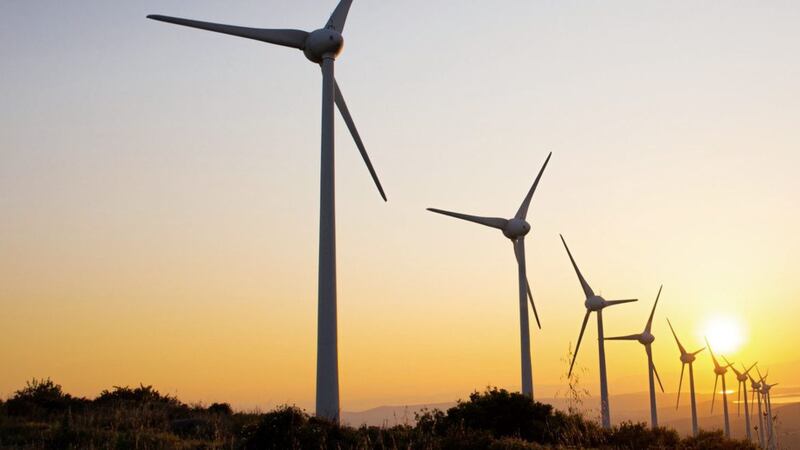STORMONT should create a single department to oversee energy or jeopardise the delivery of its main policy targets, a new report seen by The Irish News warns.
Commissioned by the Department for the Economy (DfE), the report by influential academics shows disparate delivery of current energy-related policy across no fewer than five departments, while highlighting a perceived lack of leadership and a susceptibility to “party political influence”.
The report warns that without major changes the key aim of achieving so-called net zero by decarbonising energy consumption will be put at risk.
The University of Exeter academics – Dr Richard Lowes and Prof Catherine Mitchell – were asked to “investigate how the current governance structure should change” in preparation for Stormont overseeing what is expected to be a huge shift in energy policy away from fossil fuels.
In a world undergoing “rapid change”, the authors say, the north has the potential to be “at the forefront of energy transition”. However, they identify a range of concerns about the way energy policy is both developed and delivered.
The report talks about a “belief that leadership for energy was not currently strong enough” and how “party political issues affected energy governance”.
The main Stormont department with responsibility for energy is the Department for the Economy (previously the Dept of Enterprise, Trade and Investment), headed by Diane Dodds.
The economy portfolio has been held by a DUP minister since 2007. It is the only ministry that has been consistently in the hands of one party since the St Andrews Agreement.
It is understood the report was due to be published in September but its release has been delayed. The Irish News asked the department when the report may be released but so far there has been no response.
Recommending that Stormont look outside the region for specialist skills, the academics note that currently there may not be the “capacity for effective energy policy due to limited knowledge and expertise”.
They argue for the creation of a single department – the Department for Climate and Energy Transition – adding “this would simplify the currently complex energy decision making and encourage leadership”.
The report also recommends a new independent body to advise the executive and assembly, and to scrutinise energy transition.
It argues that responsibility for energy policy be transferred to the Executive Office, as this could provide a “powerful combination of both political leadership and expert scrutiny”.
“… there may be value in placing the some responsibility for delivery the energy transition with the Executive Office,” the report states.
“This could limit the potential for party political issues.”
The Department for the Economy has yet to comment on the report's contents.








